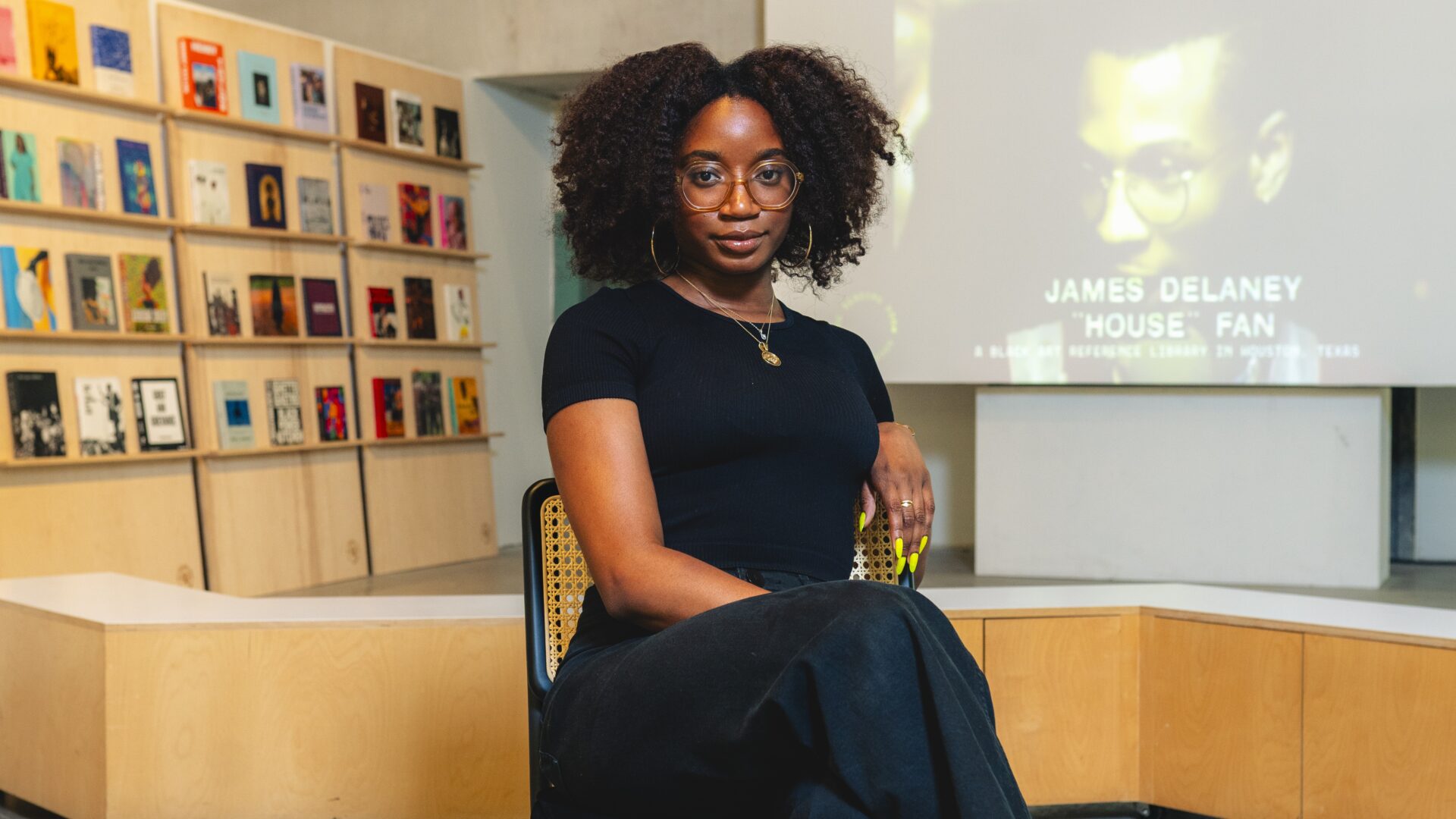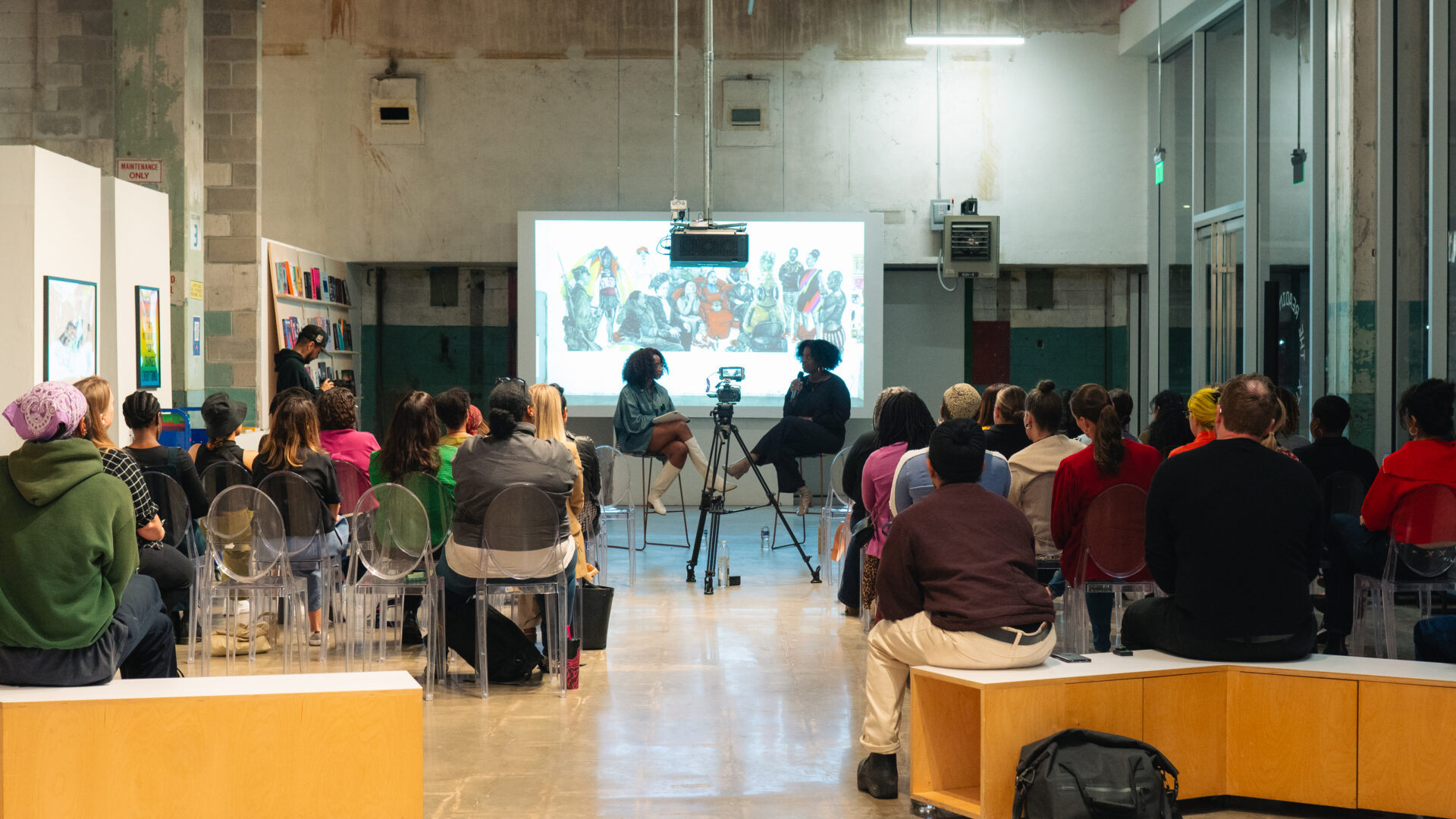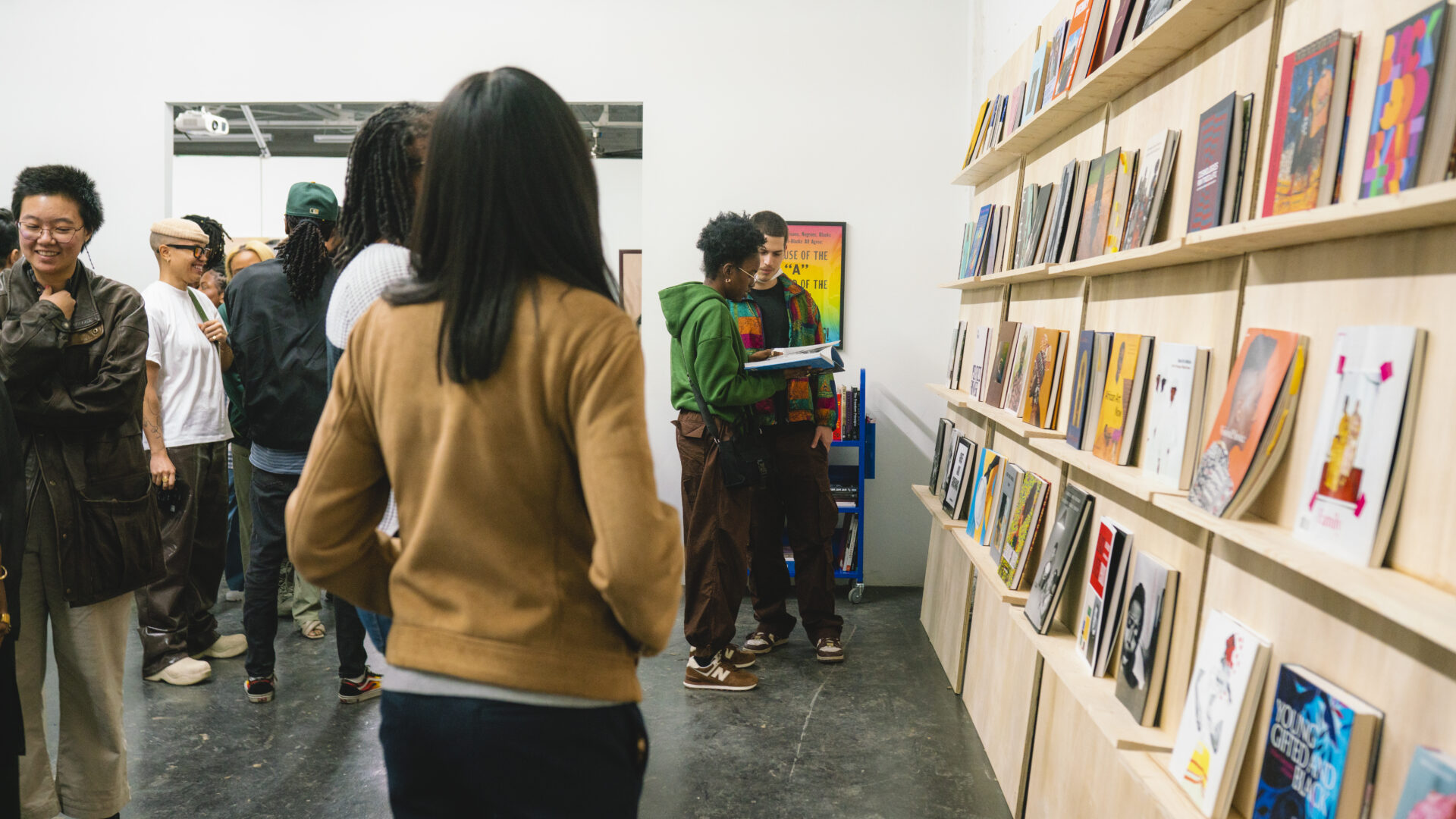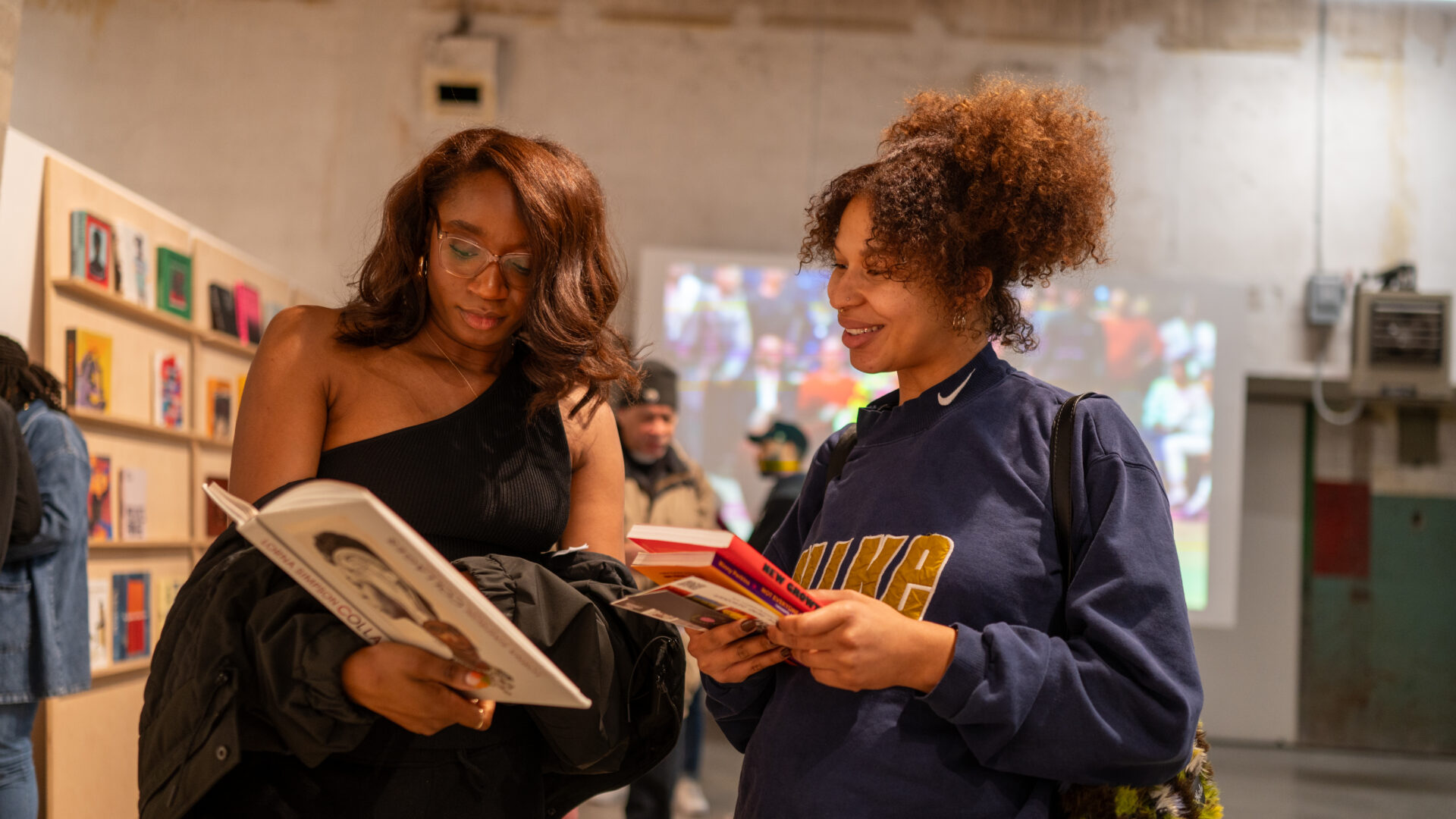
“My local library was the first place I was allowed to roam by myself as a young person,” says Library Founder Amarie Gipson. “My grandfather would drop me off and sit in the parking lot while I ran around exploring, reading books, asking questions, and using the computer. I thought it was the coolest place in my neighborhood, so I grew up wanting to be a librarian.”
One of the most essential spaces for any person, particularly the youth, is the library. The public commonspace is a workspace to other worlds told through the many genres of books available. For most millennials and Gen Z, author Ronald Dahl presented us with a character named Matilda who had uncaring parents, let alone an unloving family. However, she found love through the library, eventually reading every book within the building. As a child, the early moments of the library seemed magical. For the Houston native, the beloved Junie B. Jones was an unbeatable character that came to life from the late Barbara Park.
“She was mouthy, witty, and curious, just like me. Now, she’s on the banned book list, which is pretty iconic,” says Gipson.
A lover of the Black arts, Gipson has garnered an impressive resume penning reviews, essays, and interviews for numerous publications including Houstonia, Artforum, The Studio Museum In Harlem, and counting. Her recent endeavor is cultivating a space in her hometown’s hotspot The Post. A multi-layer convention center that features a few eateries and large-scale events, their most recent program was a fashion show hosted by Louis Vuitton. The Reading Room HTX is Gipson’s Black art reference library and destination for discovery in the city. In curating the space, she’s held experiences from partnering with Houston’s Museum of Fine Arts amplifying Black art pieces as well as authors like Dr. Akilah Cadet alongside Kindred Stories to promote their latest book release. The essential book collection came to be because of the lack of Black representation within the arts.

Read, “Off The Shelf: 10 Revolutionary Books Our Favorite Activists Recommend”
“I created The Reading Room out of pure necessity,” says Gipson. “After seven years away from home, I returned to Houston from NYC in early 2021 and was craving somewhere outside of my home where I could be surrounded by books about Black art. I knew I didn’t want to open a bookstore because of how much they tend to struggle financially these days and I felt like we needed more spaces where we don’t feel obligated to spend money. At the time, I had six years of experience in the art world and a phenomenal book collection that I knew could anchor this cultural project I wanted to build. Fast forward to 2023, I launched the library online (in lieu of having a brick-and-mortar) and started a series of short and long-term pop-ups to experiment with programming and gauge community feedback.”
Within one year, Gipson has had over 10,000 visitors in the Houston area, hosted over 20 programs, and increased her collection from 300 to over 600 books. This is a clear indication of the importance of reading spaces. The Reading Room has been a key space for Houstonians of all ages and reading levels. For Gipson, books hold more meaning than storytelling.

“Books make me feel safe,” says Gipson. “My collection has traveled with me across three states and each time I’ve taken on a new city, my books have always made me feel at home.”
More than merely a room full of books, many people aren’t aware of the vital items libraries offer. Including but not limited to newspapers, magazines, printing, passport help, SAT and testing prep, computers, wifi, homework help, language courses, and arts and crafts. Gipson shares one of the most underused resources is historic and archival images. For her, these incredible photographs can be accessed by the general public, including visual artists and creatives looking for inspiration for their work. Unfortunately states like New York, have decided that the workspace isn’t a priority. Last November, news broke in New York that budget cuts were going to greatly impact its libraries. Slashing their weekday and weekend hours, this decision restricts the many resources available including internet access or a safe space for the youth after school.
Read “New York Public Library Budget Cuts Hurts The Future Of Zillennial Literacy”
“Library defunding and closures are a direct reflection of our nation’s regressive socio-economic and political priorities,” says Gipson. “Libraries are some of the most important third spaces that we have. Not only are they free to visit, but they also give us access to necessary and empowering information. Libraries need to be protected and valued.”
With Gipson leading the charge, creating these spaces individually, both Black and woman-owned is essential now more than ever. As we celebrate Library Workers Day, Gipson shares how rewarding her newfound venture has been, even cementing how it’s been the highest honor of her life.
“I’ve never felt more fulfilled or certain of what my purpose is,” Gipson says. “All of my studies, professional experience and passions have collided into this one thing and knowing I’m making my hometown and my people feel celebrated is all I could ever ask for. Creating The Reading Room and championing the importance of libraries has truly been the highest honor of my life.”

As Gipson works to find a permanent home, she plans on bringing the space to the public in 2024. From April 18 – July 14, the Reading Room will host its third in-person pop up in Downtown Houston at Sanman Studios which will include summer programming and a collaboration with the latest arts and culture publication Jupiter Magazine. Amidst the pop up, Gipson is bringing the space to predominantly Black cities for five weeks in late August, to be revealed.
“My goal for The Reading Room is to celebrate the past, present and future of Black creativity, most importantly in the South,” Gipson says. “I want to continue disrupting the war on Black culture by amplifying our brilliance and mapping our history through physical material.”
Photo credits: Troy Montes & Tasha Gorel